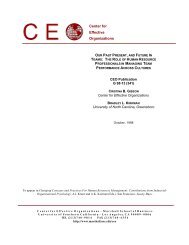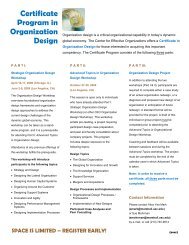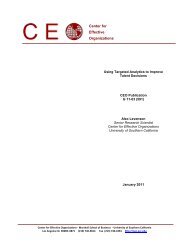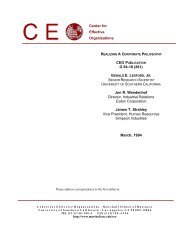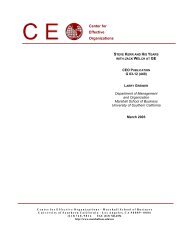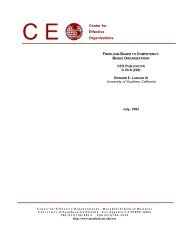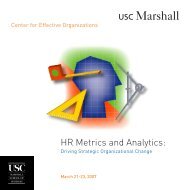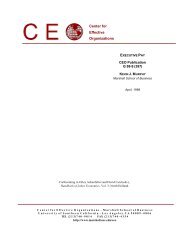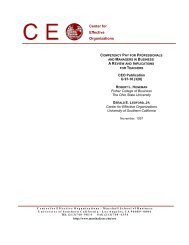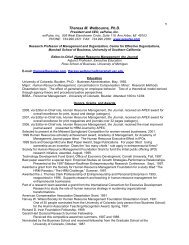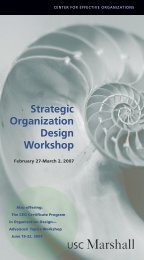Global Talent 2021 - Oxford Economics
Global Talent 2021 - Oxford Economics
Global Talent 2021 - Oxford Economics
- No tags were found...
You also want an ePaper? Increase the reach of your titles
YUMPU automatically turns print PDFs into web optimized ePapers that Google loves.
<strong>Global</strong> <strong>Talent</strong> <strong>2021</strong>How the new geography of talent will transform human resource strategiesCalls to actionOver the next decade, the dramatic shifts in the global marketplace will weigh heavilyon all firms. The ability to attract and retain quality workers will be challenging,particularly as competition increases between new upstarts in fast-growth marketsand long-established firms in the industrialized world. To meet these challenges,companies will need to rely on HR executives who are skilled at working in diversecultures, managing complexity and change, applying the latest analytical tools andthinking creatively about filling future skill gaps before they emerge.Companies will need torely on HR executiveswho are skilled atworking in diversecultures, managingcomplexity and change,applying the latestanalytical tools andthinking creatively aboutfilling future skills gapsbefore they emerge.Executives have a good sense of where the best investments in HR should be made.When asked which HR strategies and tools will deliver the highest payoff, 47% citetraining and career development, 43% say recruitment and retention, and 38% citereward and recognition plans. Firms in energy, heavy manufacturing and consumergoods say technology investment is key, while companies in construction, foodproducts, and travel and transport cite better analytics and reporting tools.To stay ahead of the curve, companies should consider the following:■ Apply the same rigor, effort and sophistication to human capital planningas is given to designing overall business strategy. No change in businessstrategy can be successful without ensuring that human capital plans are wellaligned. The same discipline and tools associated with forecasting needs, suchas scenario planning, will become increasingly valuable to HR professionals.Evidence-based personnel management will become a critical success factor asfirms ponder new business models or entering new markets.■ Think more broadly about how and where talent is sourced. Greater volatilityand emerging talent shortages in key fields will require organizations to rethinkmany traditional employment relationships. HR executives will need to recruitfor talent in new and sometimes unexpected geographies, as talent surplusesdevelop in some fast-growing markets while mature markets face talent deficits.They will also need to revisit traditional employee/employer relations: Questionsof outsourcing or on-shoring specific talents and jobs will become much moresalient in the future.■ Be prepared to invest more in retraining and reskilling. An open dialogueand partnerships with educational institutions and government employmentdevelopment agencies can help firms ensure a healthy talent pipeline, particularlyin fast-growth markets. Developing programs that train and educate workers notonly helps with recruiting but improves employee loyalty.■ Take a greater evidence-based approach to talent management. Employingworkforce analytics to assess and segment talent, and using quantitative tools toidentify risk and integrate HR into business planning can lead to superior results.Making your workforce aware of how analytical tools are being used—and thatperformance is being measured and rewarded—can powerfully reinforce amessage that people are at the center of any successful business transformation.19OXFORD ECONOMICS



